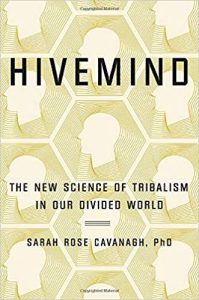Three on the Third is a monthly series in which we highlight three books new to the library collection. Summaries of the books are provided along with shelf location and a link to the item in the catalog. This month we’re modifying it slightly to spotlight four exciting new additions across a variety of subject areas.
United States v. Apple Competition in America
by Chris Sagers
 One of the most followed antitrust cases of recent times–United States v. Apple–reveals a missed truth: what Americans most fear is competition itself. In 2012 the Department of Justice accused Apple and five book publishers of conspiring to fix e-book prices. The evidence overwhelmingly showed an unadorned price-fixing conspiracy that cost consumers hundreds of millions of dollars. Yet before, during, and after the trial millions of Americans sided with the defendants. Pundits on the left and right condemned the government for its decision to sue, decrying Amazon’s market share, railing against a new high-tech economy, and rallying to defend beloved authors and publishers. For many, Amazon was the one that should have been put on trial. But why? One fact went unrecognized and unreckoned with: in practice, Americans have long been ambivalent about competition. Chris Sagers, a renowned antitrust expert, meticulously pulls apart the misunderstandings and exaggerations that industries as diverse as mom-and-pop grocers and producers of cast-iron sewer pipes have cited to justify colluding to forestall competition.
One of the most followed antitrust cases of recent times–United States v. Apple–reveals a missed truth: what Americans most fear is competition itself. In 2012 the Department of Justice accused Apple and five book publishers of conspiring to fix e-book prices. The evidence overwhelmingly showed an unadorned price-fixing conspiracy that cost consumers hundreds of millions of dollars. Yet before, during, and after the trial millions of Americans sided with the defendants. Pundits on the left and right condemned the government for its decision to sue, decrying Amazon’s market share, railing against a new high-tech economy, and rallying to defend beloved authors and publishers. For many, Amazon was the one that should have been put on trial. But why? One fact went unrecognized and unreckoned with: in practice, Americans have long been ambivalent about competition. Chris Sagers, a renowned antitrust expert, meticulously pulls apart the misunderstandings and exaggerations that industries as diverse as mom-and-pop grocers and producers of cast-iron sewer pipes have cited to justify colluding to forestall competition.
KF 1627 .S242 2019
Catalog Link – United States v. Apple
Hive Mind
by Sarah Rose Cavanagh
 Hivemind: A collective consciousness in which we share consensus thoughts, emotions, and opinions; a phenomenon whereby a group of people function as if with a single mind. Our views of the world are shaped by the stories told by our self-selected communities. Whether seeking out groups that share our tastes, our faith, our heritage, or other interests, since the dawn of time we have taken comfort in defining ourselves through our social groups. But what happens when we only socialize with our chosen group, to the point that we lose the ability to connect to people who don’t share our passions? What happens when our tribes merely confirm our world view, rather than expand it? The advent of social media and smartphones has amplified these tendencies in ways that spell both promise and peril. Our hive-ish natures benefit us in countless ways–combating the mental and physical costs of loneliness, connecting us with collaborators and supporters, and exposing us to entertainment and information beyond what we can find in our literal backyards. But of course, there are also looming risks–echo chambers, political polarization, and conspiracy theories that have already begun to have deadly consequences. Leading a narrative journey from the site of the Charlottesville riots to the boardrooms of Facebook, considering such diverse topics as zombies, neuroscience, and honeybees, psychologist and emotion regulation specialist Sarah Rose Cavanagh leaves no stone unturned in her quest to understand how social technology is reshaping the way we socialize. It’s not possible to turn back the clocks, and Cavanagh argues that there’s no need to; instead, she presents a fully examined and thoughtful call to cut through our online tribalism, dial back our moral panic about screens and mental health, and shore up our sense of community.
Hivemind: A collective consciousness in which we share consensus thoughts, emotions, and opinions; a phenomenon whereby a group of people function as if with a single mind. Our views of the world are shaped by the stories told by our self-selected communities. Whether seeking out groups that share our tastes, our faith, our heritage, or other interests, since the dawn of time we have taken comfort in defining ourselves through our social groups. But what happens when we only socialize with our chosen group, to the point that we lose the ability to connect to people who don’t share our passions? What happens when our tribes merely confirm our world view, rather than expand it? The advent of social media and smartphones has amplified these tendencies in ways that spell both promise and peril. Our hive-ish natures benefit us in countless ways–combating the mental and physical costs of loneliness, connecting us with collaborators and supporters, and exposing us to entertainment and information beyond what we can find in our literal backyards. But of course, there are also looming risks–echo chambers, political polarization, and conspiracy theories that have already begun to have deadly consequences. Leading a narrative journey from the site of the Charlottesville riots to the boardrooms of Facebook, considering such diverse topics as zombies, neuroscience, and honeybees, psychologist and emotion regulation specialist Sarah Rose Cavanagh leaves no stone unturned in her quest to understand how social technology is reshaping the way we socialize. It’s not possible to turn back the clocks, and Cavanagh argues that there’s no need to; instead, she presents a fully examined and thoughtful call to cut through our online tribalism, dial back our moral panic about screens and mental health, and shore up our sense of community.
HM 866 .C38 2019
Catalog Link – Hive Mind
Pain Killer
An Empire of Deceit and the Origin of America’s Opioid Epidemic
by Barry Meier
 Between 1999 and 2017, an estimated 250,000 Americans died from overdoses involving prescription painkillers, a plague ignited by the aggressive marketing of OxyContin by its maker, Purdue Pharma. Purdue, owned by a wealthy and secretive family–the Sacklers–knew early on that teenagers and others were abusing its billion dollar “wonder” drug. But Justice Department officials balked a decade ago when it came to meting out justice, allowing an opioid crisis to evolve into a catastrophe. Originally published in 2003 and hailed since as groundbreaking, Meier–in this thoroughly updated edition–reveals new and shocking information about how long the drug maker knew about OxyContin’s abuse, even as it marketed it aggressively, and the way government officials passed up opportunities to protect hundreds of thousands of lives. Equal parts crime thriller, medical detective story, and business expos, ̌ Pain Killer is the origin story of the opioid crisis, a hard-hitting look at how a supposed wonder drug became the gateway drug to a national tragedy.
Between 1999 and 2017, an estimated 250,000 Americans died from overdoses involving prescription painkillers, a plague ignited by the aggressive marketing of OxyContin by its maker, Purdue Pharma. Purdue, owned by a wealthy and secretive family–the Sacklers–knew early on that teenagers and others were abusing its billion dollar “wonder” drug. But Justice Department officials balked a decade ago when it came to meting out justice, allowing an opioid crisis to evolve into a catastrophe. Originally published in 2003 and hailed since as groundbreaking, Meier–in this thoroughly updated edition–reveals new and shocking information about how long the drug maker knew about OxyContin’s abuse, even as it marketed it aggressively, and the way government officials passed up opportunities to protect hundreds of thousands of lives. Equal parts crime thriller, medical detective story, and business expos, ̌ Pain Killer is the origin story of the opioid crisis, a hard-hitting look at how a supposed wonder drug became the gateway drug to a national tragedy.
HV 5822 .O99 M45 2018
Catalog Link – Pain Killer
The Memory Police
by Yoko Ogawa
 On an unnamed island off an unnamed coast, objects are disappearing: first hats, then ribbons, birds, roses–until things become much more serious. Most of the island’s inhabitants are oblivious to these changes, while those few imbued with the power to recall the lost objects live in fear of the draconian Memory Police, who are committed to ensuring that what has disappeared remains forgotten. When a young woman who is struggling to maintain her career as a novelist discovers that her editor is in danger from the Memory Police, she concocts a plan to hide him beneath her floorboards. As fear and loss close in around them, they cling to her writing as the last way of preserving the past. A surreal, provocative fable about the power of memory and the trauma of loss, The Memory Police is a stunning new work from one of the most exciting contemporary authors writing in any language.
On an unnamed island off an unnamed coast, objects are disappearing: first hats, then ribbons, birds, roses–until things become much more serious. Most of the island’s inhabitants are oblivious to these changes, while those few imbued with the power to recall the lost objects live in fear of the draconian Memory Police, who are committed to ensuring that what has disappeared remains forgotten. When a young woman who is struggling to maintain her career as a novelist discovers that her editor is in danger from the Memory Police, she concocts a plan to hide him beneath her floorboards. As fear and loss close in around them, they cling to her writing as the last way of preserving the past. A surreal, provocative fable about the power of memory and the trauma of loss, The Memory Police is a stunning new work from one of the most exciting contemporary authors writing in any language.
PL 858 .G37 H5713 2019
Catalog Link – The Memory Police
